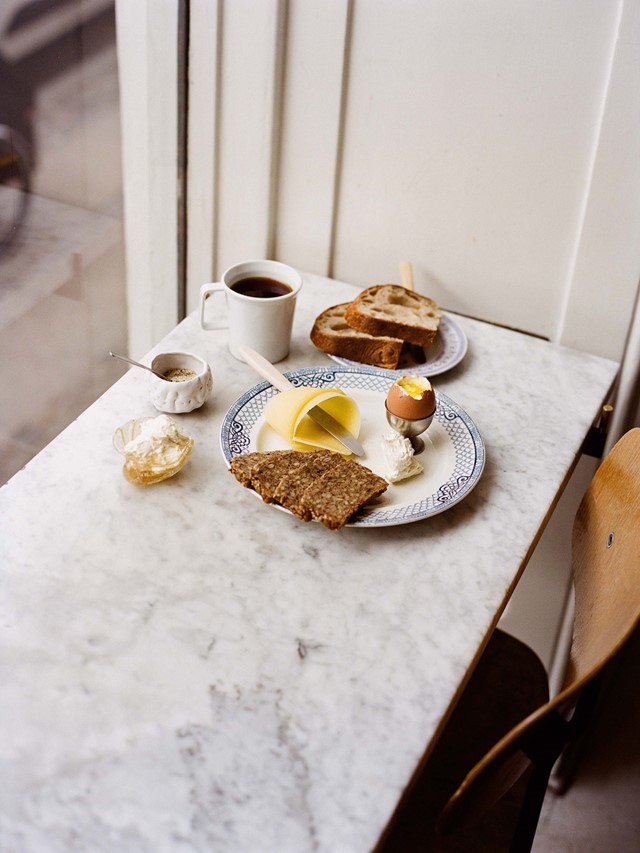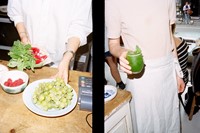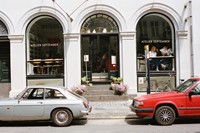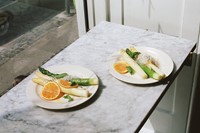As his new cookbook launches at London’s Dover Street Market, Danish chef Frederik Bille Brahe of Atelier September talks about his devotion to “daytime eating”
If you find yourself eating at Atelier September, Frederik Bille Brahe’s much-loved and lauded restaurant in Copenhagen, you might be served eggs on a 150-year-old Etruscan plate. When Bille Brahe first founded the restaurant ten years ago, he would head to flea markets to source beautiful dishes to match his equally beautiful food. “It’s a significant plate,” he says. “It’s from the 1870s and has experienced so much. It has lived in people’s homes and people have taken care of it. In the end, we are so lucky that we can use it and serve food on it.”
This philosophy – which encompasses the importance and significance of memory and personality in fine dining – is innate to the Danish restaurateur’s practice. Now, in a new cookbook published by Apartamento titled Atelier September: A place for daytime cooking, Bille Brahe shares the recipes that have made Atelier September so iconic. The book celebrates daytime cooking, a notion that the restaurant initially embraced out of necessity since it was only allowed to be open during the day, and was not allowed to serve alcohol. “In Denmark, there was no scene for daytime cooking when I started,” says Bille Brahe. “All the focus went into dinner – the Michelin idea. So I think that Atelier September was a creator of daytime culture in Denmark. It kind of carved out the scene.”
Some may call it brunch, but that liminal space when breakfast segues into lunch, which then moves into all-day eating, is harder to encapsulate than one might think. It takes Atelier September’s plates – think: whipped butter, tomato toast with tofu cream, simple summer salads with citrus and bitter greens, or even fluffy pancakes that merge the best of American-style and Japanese inspiration – to satiate customers’ appetites for more.
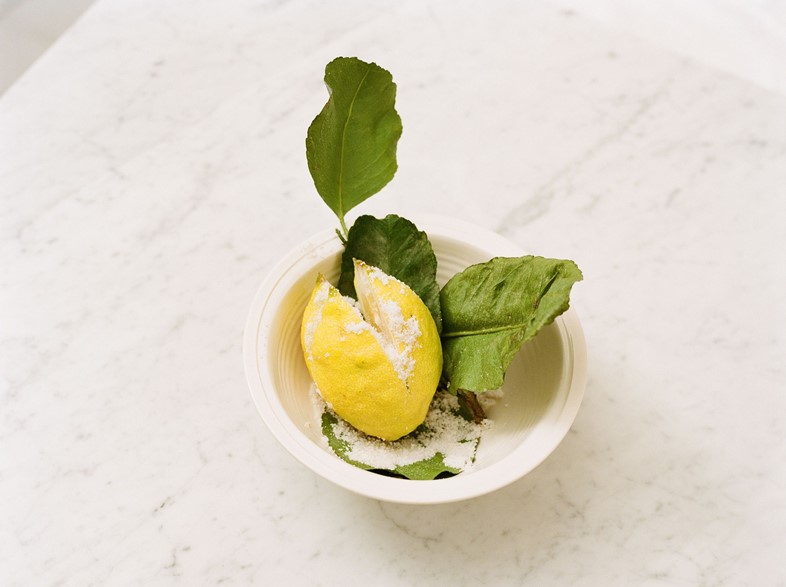
Bille Brahe’s focus on personal moments and respect for fine dining give flourishes to simple daily foods, and make the recipes in Atelier September so enticing. For instance, the chef leans into a classic Danish breakfast, recommending the traditional eggs, rye bread, cheese and butter, but elevates the offering with a fine Comté cheese, a reminder of a sublime variety Bille Brahe once tasted at a restaurant in Paris. Most of the recipes in the book are vegetarian, with combinations of fresh salads and heaped smørrebrød that argue for eating as pleasure, not food as fuel. “I think what makes daytime eating so beautiful is that there’s an aspect of health, of light,” he says.
It’s surprisingly easy to see how these dishes might be replicated by a home cook, even one whose access to produce as elegant as that found in Copenhagen is limited. Much of Bille Brahe’s approach is assemblage and the pairings of unique flavours. On the Sunday (March 18) of London Fashion Week, Atelier September will take over Rose Bakery, the no-frills restaurant on the top floor of Dover Street Market London, for lunch. It’s an institution Bille Brahe recognises as a big influence, with the retailer’s “generosity of spirit and melting pot of fashion and culture”. It’s not the first time he’s replicated his approach elsewhere, having previously collaborated with his friend Max Rocha, cooking at Hackney’s Café Cecilia.
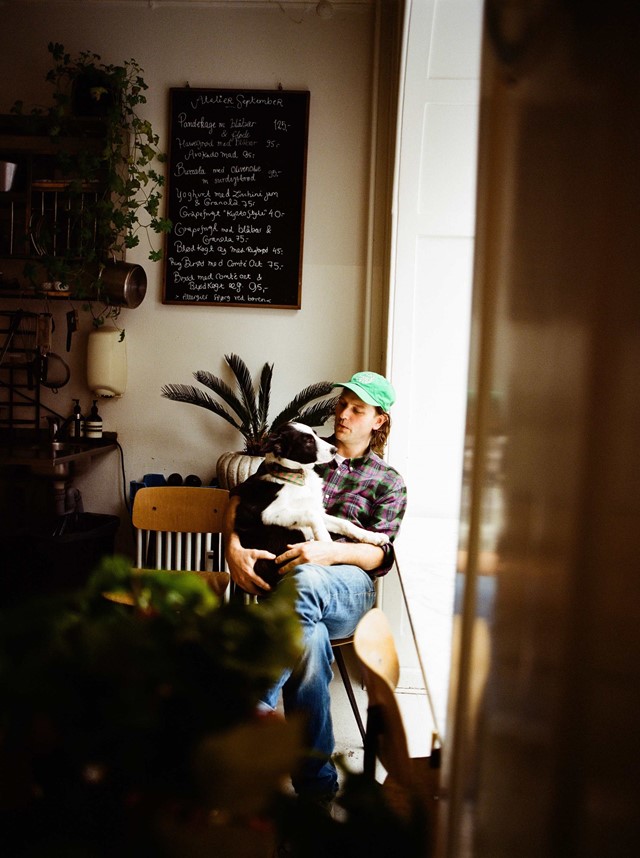
Whichever style plate you choose to serve your take on tomato with vanilla marinade, to replicate or just be inspired by Bille Brahe’s cooking is to bring an essence of Atelier September’s Danish ethos of abundance and pleasure into your home. As Bille Brahe says, “Objects are places in and of themselves; they don’t only belong to a space.”
Atelier September by Frederik Bille Brahe is published by Apartamento, and is launching at Dover Street Market in London on February 18. The book is also available to buy here.
